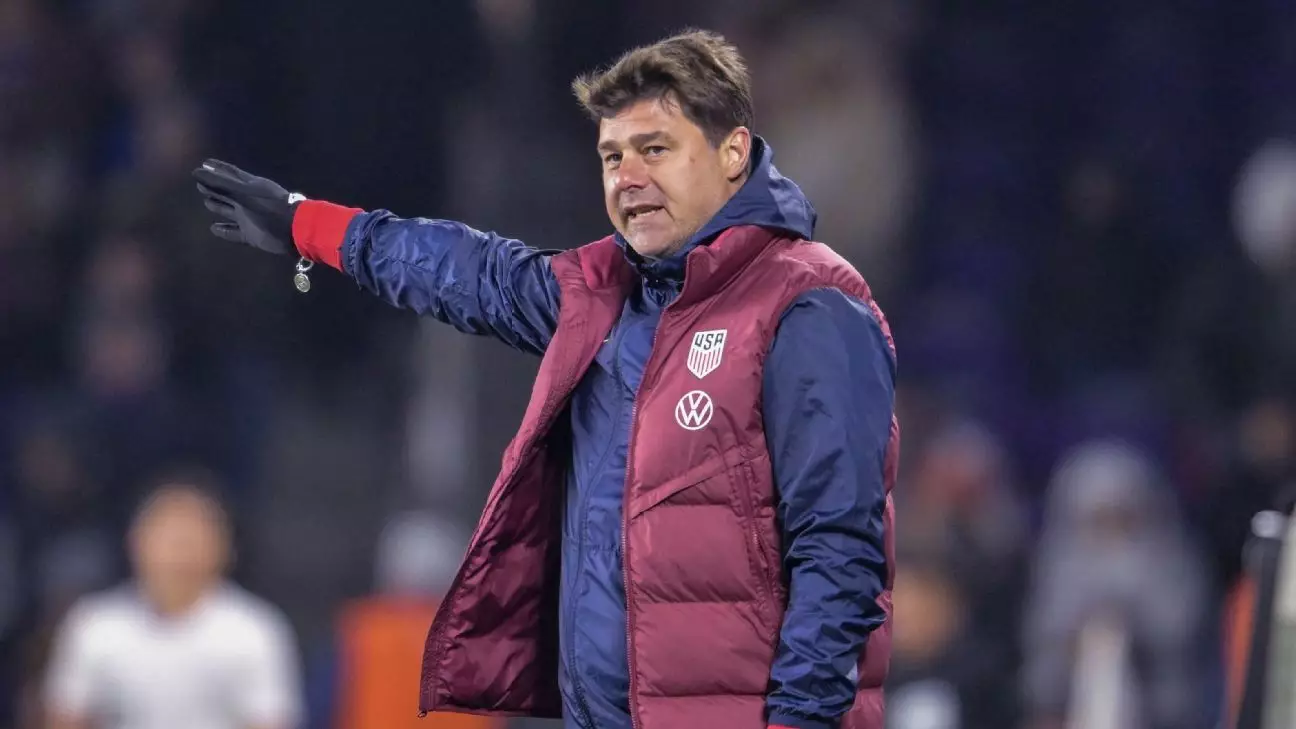Mauricio Pochettino’s connection to Tottenham Hotspur is deeper than mere nostalgia; it is woven into the fabric of the club’s recent history. The Argentine manager, who once led Spurs to a historic Champions League final, has made it clear that his heart remains with the North London club. His recent statements highlight an evolving narrative — will the stars align for a return? Pochettino’s journey has taken him from the Spurs sidelines to managing Paris Saint-Germain and Chelsea, and now, leading the United States men’s national team. This evolution reflects a career marked by transformations, yet his affection for Tottenham never wanes.
Pochettino’s bond with Spurs chairman Daniel Levy remains intact, illustrating a professional rapport that withstands the test of time. The notion that Levy serves as a sounding board reinforces the idea that their relationship is built on mutual respect and shared ambitions. This connection may not be simply about football strategies; it reflects a shared understanding of the game and timing—a crucial aspect often overlooked in managerial decisions.
The Timing Dilemma
Timing, as Pochettino emphasizes, is pivotal in football. His comments reveal a profound awareness of the intricacies surrounding managerial positions. The prospect of managing the England national team appears tempting, yet Pochettino optimistically recognizes that his current commitment to the U.S. team must take precedence. It prompts reflection on how timing shapes careers in football. Many talented managers find their ambitions thwarted by unforeseen circumstances or opportunities that come and go.
Should the timing eventually align, the allure of returning to Tottenham could prove irresistible. Fans of the club remember his tenure with fondness, as he brought a style of play that reinvigorated Tottenham’s identity. His statement about wanting to return signifies a lasting affection, a sentiment not frequently seen in the often transactional world of football management.
Spurs’ Managerial Turmoil
Yet, Pochettino’s potential future return to Spurs cannot happen in isolation, especially given the managerial instability the club has faced since his departure. The fact that Levy has hired four permanent managers since Pochettino’s exit raises questions about the current direction of the club and the pressure on his successor, Ange Postecoglou. Is Spurs navigating through an identity crisis, or merely a rocky phase? Football fans often scrutinize managerial decisions based on immediate results rather than long-term vision.
In this context, Pochettino stands out as a figure of stability and success, someone who once unified a fractured squad and brought hope to the club. His yearning for a return to Spurs could signify a desire not only for personal fulfillment but also for restoring a sense of unity and direction to a team that desperately needs it.
The Voice of Experience
Pochettino’s seasoned perspective on football underscores the challenges faced by clubs in transition. He speaks from experience, acknowledging the delicate balance of ambition and timing. His approach to management is informed by years of navigating the complexities of football culture and the ever-changing dynamics within clubs. This insight could be invaluable not only for Spurs but for any ambitious club seeking to rebuild.
His journey through various top-tier clubs has exposed him to diverse football philosophies, which could enhance his managerial toolkit. As he prepares to lead the U.S. in a home World Cup, the lessons learned during his time away from Spurs could shape his approach to reviving a club he cherishes deeply. While fans yearn for Pochettino’s return, the larger narrative is about the evolution of a manager who is not only passionate but also acutely aware of football’s nuances.

